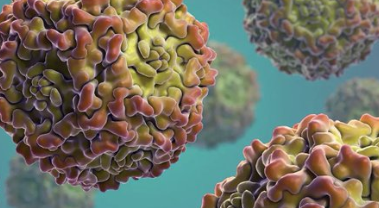Parvovirus B19, commonly known as “slapped cheek disease,” is experiencing a noticeable increase in cases across the United States, particularly among children. The U.S. Centers for Disease Control and Prevention (CDC) issued a health advisory on August 13, highlighting a significant rise in parvovirus activity, with the highest surge observed in children aged five to nine.
Cases of human parvovirus B19, commonly known as Fifth disease, are on the rise, prompting the CDC this week to issue a health advisory.
Learn about the symptoms and how it is spread: https://t.co/BvpiMcHWxU pic.twitter.com/lBo6DvouMZ
— Mayo Clinic (@MayoClinic) August 16, 2024
The CDC’s data reveals a sharp increase in the proportion of individuals with antibodies against parvovirus B19, suggesting a recent surge in infections. From 2022 to 2024, the percentage of people with detectable antibodies rose from under 3% to 10% by June 2024. In children aged five to nine, this figure jumped from 15% to 40%. This uptick in cases has been accompanied by reports of complications in pregnant individuals and those with sickle cell disease.
In Europe, public health authorities noted unusually high numbers of parvovirus B19 cases in 14 countries during the first quarter of 2024, which further underscores the growing concern.
Parvovirus B19 is a common, highly contagious respiratory infection that primarily affects children. It is often referred to as “slapped cheek disease” due to the distinctive rash it can cause. This viral infection is also known as “fifth disease,” a name derived from its historical position on a list of childhood illnesses that cause rashes.
The virus spreads through respiratory droplets produced when an infected person coughs or sneezes. Close personal contact facilitates transmission, particularly in settings like schools where children are in close contact with one another. Less commonly, the virus can be transmitted from a mother to her fetus during pregnancy or through blood transfusions.
Symptoms of parvovirus B19 infection are usually mild and can include fever, headache, cough, sore throat, runny nose, and joint pain. A characteristic “slapped cheek” rash often appears on the face and may spread to other parts of the body. This rash typically resolves within a week to ten days but can persist or recur over several weeks.
What is parvovirus B19, the highly contagious virus the CDC alerted? https://t.co/vPWqJwGl0a pic.twitter.com/so0fGnUiA8
— New York Post (@nypost) August 16, 2024
Adults with parvovirus B19 may experience joint pain and swelling, which can resemble rheumatoid arthritis but generally resolves without long-term damage. However, for individuals who are pregnant, immunocompromised, or have certain blood disorders, the infection can pose serious risks. Pregnant women, in particular, face potential complications such as fetal anemia or miscarriage, especially if infected during the first 20 weeks of gestation. Individuals with weakened immune systems or chronic blood disorders may suffer from severe anemia or a significant drop in blood count.
There is no specific antiviral treatment for parvovirus B19. Management typically involves supportive care, including pain relievers and fever reducers. In cases of severe anemia, blood transfusions or other treatments may be necessary.
Importantly, while the name “parvovirus” might suggest a connection to canine parvovirus, the two are distinct. Canine parvovirus type 2 (CPV-2) affects dogs and causes gastrointestinal illness, but does not infect humans.
‘Slapped Cheek’ Virus Rising In US, CDC Warns—Here’s What To Know About Human Parvovirus B19https://t.co/tyvjlJxymd pic.twitter.com/gNleJ48pjA
— Forbes (@Forbes) August 14, 2024
Preventing parvovirus B19 involves basic hygiene practices, such as frequent handwashing, covering coughs and sneezes, and avoiding close contact with sick individuals. Keeping sick children at home can also help limit the spread of this infection.
Key Points:
i. Parvovirus B19 cases are rising in the U.S., particularly among children aged five to nine, prompting a CDC health advisory.
ii. virus spreads through respiratory droplets and close personal contact, with symptoms including a distinctive rash, fever, and joint pain.
iii. Adults and pregnant individuals are at higher risk of severe complications; pregnant women may face risks like fetal anemia or miscarriage.
iv. There is no specific treatment for parvovirus B19; management focuses on symptomatic relief and supportive care.
v. Unlike canine parvovirus, which affects dogs, human parvovirus B19 does not transmit between pets and people.
Kirk Volo – Reprinted with permission of Whatfinger News



